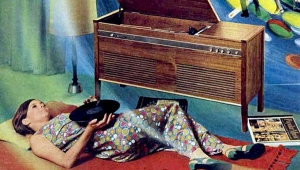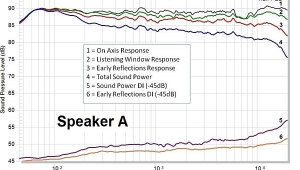| Columns Retired Columns & Blogs |
Copying and Sharing Recorded Music (The Dos and Don'ts of Copyright Law) Letters
Letters in response appeared in December 2005 (Vol.28 No.12):
Copyright law
Editor: Laurence A. Borden's September 2005 article regarding copyright law as applied to copying and sharing music was a valiant effort. Unfortunately, because copyright laws, much like the tax code, were written by and for lawyers and lobbyists, it is all too easy for nonspecialists seeking to explain the law to go astray.
First, the article suggests that making digital copies of music for your personal use was a matter of fair-use principles until the passage of the 1992 Audio Home Recording Act (AHRA). Unfortunately, that's simply not true. When it comes to the most prevalent kinds of copying on computers today—copying CDs and ripping music to MP3 players—AHRA is largely irrelevant. That law applies only where the recorder or blank media are "compliant" under AHRA (ie, support SCMS and have paid the copyright royalty). The CD burners in PCs are not covered by AHRA, nor are any of the "data" CD-Rs that most people use in them. Neither are iPods or other MP3 players. So, unless you are one of the very few who use "audio" CD-Rs (which cost several times as much as "data" blanks, due to the copyright levy) or consumer DAT recorders, AHRA does not apply to you. Personal-use copying continues to be governed, as it always has been, by the often murky principles of fair use.
Second, the article states that the first-sale doctrine, which generally allows consumers to sell, lend, or give away CDs they have purchased, notwithstanding the copyright owner's exclusive right to distribute, "does not apply to a copy the purchaser makes." That is also incorrect. The principle of first sale is contained in Section 109 of the Copyright Act, which expressly applies to any copy "lawfully made." By its terms, this would appear to include copies lawfully made by consumers, whether under fair use or AHRA.
Third, the article states that the Digital Millennium Copyright Act (DMCA) makes it illegal to make digital copies of "copy-protected" CDs. This, also, is false. The DMCA applies differently to works that include "access controls" (such as SACDs, which are encrypted) and those that merely employ "copy controls." The law prohibits a consumer from bypassing the former but not the latter. (Compare sections 1201(a) and 1201(b) of the Copyright Act.) So, where copy-protected CDs are concerned, consumers are free (within the bounds of fair use and AHRA) to work around copy-protection measures and make copies. (The DMCA, however, does prohibit the distribution of tools designed to circumvent either access or copy controls, but this is something for the technology distributors to worry about, not consumers who use the tools.)
Finally, I'd like to take issue with the notion that fair use is not a "right," but merely a legal defense to a charge of copyright infringement. The same can be said of the First Amendment's protections for free speech—those provisions, too, are legally relevant only as a defense against laws that otherwise stymie speech. But that has never stopped those who value civil liberties from proclaiming that the First Amendment protects our "right" to free speech. In that same spirit, I think it is absolutely proper to refer to fair use as a "right."—Fred von Lohmann, Senior Intellectual Property Attorney, Electronic Frontier Foundation, fred@eff.org
Thank you, Mr. von Lohmann, for sharing with the readers of Stereophile your considerable knowledge of and insight into this complex topic. My responses to your specific points are as follows:
1. As I noted in footnote 7 (p.59), the laws governing copying to a computer or MP3 player do differ from those pertaining to copying onto certain types of discs. I appreciate your providing some important clarifications regarding the use of different types of CD-Rs.
2. In researching this article, I was struck by the fact that the first-sale doctrine might represent a significant loophole to copyright holders' exclusive right to distribute. I discussed this with a few intellectual-property attorneys, all of whom felt that a copy would not be deemed "lawfully made." If you have any relevant case law on this point, I would be most appreciative if you would send it to me.
3. Thank you for clarifying the difference between access controls and copy controls vis-à-vis the DMCA. I stand corrected.
4. There are many different viewpoints as to what constitutes a "right," and I pointed out at the top of p.59 one reason some view fair use in this way. I most certainly respect your views on this subject, even if they are not in complete agreement with my own.—Laurence A. Borden
The exchange continued via email:
Dear Mr. von Lohmann:
Prompted by your comment, I have conducted some research in an attempt to support my position that transfer of a copy is not covered by the First Sale Doctrine. Bender states the following:
[a] Disposition of Tangible Item.
In its core situation, Section 109(a) provides that the distribution right may be exercised solely with respect to the initial disposition of copies of a work, not to prevent or restrict the resale or other further transfer of possession of such copies. 20. More colloquially, once the copyright owner first sells a copy of the work, his right to control its further distribution is exhausted. 21. Moreover, although the initial disposition of that copy may be a sale, the identical legal conclusion applies to a gift or any other transfer of title in the copy. 22. Therefore, the more accurate terminology would not be "first sale" but rather "first authorized disposition by which title passes." 23. In each instance, Section 109(a) terminates further application of the distribution right to the affected copy. The appropriate lines of inquiry should be:
(a) was the subject physical product (the "copy") lawfully manufactured with authorization of the copyright owner;
(b) was that particular copy transferred under the copyright owner's authority;
(c) does defendant qualify as the lawful owner of that particular copy; and
(d) did defendant thereupon dispose of that particular copy (as opposed to, for example, reproducing it)?
An affirmative answer to each question validates the defense. Failure to qualify under any prong dooms it."
It is my belief that a copy of a CD, even if made by the individual who legally purchased that CD, would not satisfy (a); ie, such a copy would not be "lawfully manufactured with authorization of the copyright owner..."
Additionally, Bender discusses electronic transfer of a movie (as an example), the conclusions of which I feel are applicable to the transfer of a copied disc. Bender states:
"As long as Ursula limits herself to simply distributing that copy, she satisfies the final ingredient (d) of the first sale defense. Accordingly, Ursula may, for instance, sell her PC lock, stock, and barrel—necessarily including the hard drive on which The Art of War is embodied—without any permission from the film's copyright owner. It is important to realize that no amendment to the current Act is required to reach this result. Rather, if strengthening of copyright owner's rights is deemed necessary for the digital world, then the Act will need to be amended to prevent this result. Though such a state of affairs might seem surprising, further reflection reveals that the decision to keep the Copyright Act of 1976 as governing law inevitably entails that its language will maintain traditional distinctions 224.—even in locales where, a priori, one might not expect to find them. 225.
Of course, current law does not limit Ursula to selling her PC. She still falls within the first sale defense, so long as she limits herself to distributing the particular "copy" that is lawfully within her possession, as opposed to, for example, reproducing it. 226. We now reach the hypothetical of Ursula selling her copy of The Art of War to Ulysses for $10 and simultaneously expunging it from her own personal computer. Does that activity likewise find shelter under current law?
The answer depends on technology. If the implicated bits pass one way from Ursula's computer to Ulysses' in the same manner as the silicon and jewelcase pass from Lee's hands to Wes' possession, then the answer is positive. 227. On the other hand, if Ursula first makes a copy of the work for Ulysses, and only afterwards deletes her original, then she has implicated the copyright owner's reproduction right and can no longer find safe harbor in the first sale doctrine. 228.
The key issue seems to be that transfer is permitted provided that no copy exists.
I welcome your feedback, and again thank you for your interest in my article.—Larry Borden
Mr. Borden, First, thanks to you for your responses. It is a rare thing that I can interest other lawyers in the intricacies of copyright law, much less the fine folks who write for Stereophile. And let me again commend you on your effort to parse a notoriously complicated set of questions (is it any wonder music fans are confused?).
Let me reply to your point regarding first sale, in hopes that we will agree where the swampy bits are.
On the issue of first sale, Bender is indulging in a bit of editorial opinion that is not supported by law. His claim that the exercise of first sale under Section 109 requires that the copy was "lawfully manufactured with authorization of the copyright owner" has no foundation in the statute. The statute says that first sale right applies to "the owner of a particular copy or phonorecord lawfully made under this title." There is no mention of any requirement that the copy be made "with authorization of the copyright owner", but rather merely that it be lawful under the Copyright Act. The two things are, of course, quite distinct, given the many exceptions provided in the Copyright Act.
In other words, there is nothing in the literal language of Section 109 that prevents it from applying to (1) copies that qualify as fair uses or (2) copies made on levy-paid audio blanks (like "audio CD-Rs") under the AHRA (17 USC 1008). So those copies can be given away, sold, lent to a friend, etc.
David Nimmer's Copyright treatise supports this view: ""on balance, it would seem that the literal text of Section 109(a) should be followed, so that its immunity may be claimed by any 'owner of a particular copy or phonorecord lawfully made,' and not just by those who acquired such ownership via a prior transfer from the copyright owner." Nimmer on Copyright, Section 8.12(B)(3)(c). The Copyright Office, in its "DMCA Section 104 Report" published a few years ago, also conceded that a court could read Section 109 that way (it then recommended an amendment to get to the position that Bender advocates). See DMCA Section 104 Report, pages 156-60 (the report can be found by googling for "dmca section 104").
There is nowhere in the Copyright Act any duty to delete all existing copies as a condition of exercising your Section 109 rights to transfer any copy lawfully made. The excerpt from Bender doesn't say otherwise, but rather states that Section 109 does not excuse copying, but only the distribution of a "lawfully made" copy. Thus, the first sale doctrine, standing alone, will not save an owner of computer software who has to first copy it to give it away. Of course, in the case of a copy of a CD, the owner would not rely on the first sale doctrine to excuse the copying—that is a matter for fair use, the AHRA, or some other exception. But once that copy is lawfully made, there is no requirement that the original be destroyed if the consumer wants to give the copy away (or vice-versa).
Of course, many argue that common sense rebels against this result, as it would appear to allow people to sell cassette copies they made from record albums years ago, or VHS copies they made of their favorite TV shows (assuming these copies would have been fair uses at the time made). I don't take issue with the apparent oddity of that result. But that is what the law says. And believe me, that is hardly the most counter-intuitive of the obscure provisions of the Copyright Act.
I will concede that this is not an area of law that has a bundle of judicial precedents. But we do have the statute, and it speaks clearly, so I think this is not simply a matter of lawyers disagreeing over a murky area without any sign posts.
One of the reasons I've spent as much time thinking about this issue as I have is because I have always struggled to understand how copyright law addresses the ubiquitous practice among music fans of giving away "mix tapes" to friends. As a music fan, I myself regularly do this as part of a "burning circle" of a few friends (always on royalty-paid "audio CD-Rs", although Section 1008 also approves of analog cassette copies). While many real-world practices among music fans have no correspondence to copyright law, I think this one has a relatively firm foundation.
My apologies for the lengthy reply. I can only hope you've not dozed off. :-)—Fred von Lohmann, Senior Intellectual Property Attorney, Electronic Frontier Foundation, fred@eff.org
- Log in or register to post comments




































